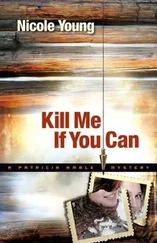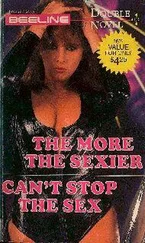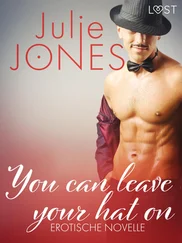He’d moved around the Harrow house to the east, using the cornfield for cover till he was behind the garage, where he could step out, without anyone seeing him.
Here, the garage was attached to the house, one door open on the empty space of George Reid’s SUV, the other door closed, the wife’s car obviously within as usual.
He’d felt the sweat beading his brow and trickling down his back, but it was just the August heat, not nerves. He was just a postman on his rounds, delivering bad news. Internally, he was so cool, it was as if he already stood within the air-conditioned walls of Harrow’s house.
On this New Mexican night, he was so experienced at his mission that he didn’t even feel warm, despite wearing black jeans, a long-sleeved black T-shirt, and black Reeboks. Even the stocking cap didn’t seem to generate any heat on his forehead. He was far cooler than he’d been in Iowa, and dressed differently.
At Harrow’s, he’d straightened his narrow black tie, and glanced again toward the house, where he saw no movement through curtained windows. He carried a pair of Watchtower pamphlets and wore the plain dark suit suitable to a Jehovah’s Witness. This, he felt, was a perfect disguise. Even if he knocked on the wrong door, no one ever remembered the earnest anonymous face of a Witness thrusting the Watchtower at them; and very seldom was anyone rude enough to slam the door in a religious face. Usually he could easily get in the door, selling one message before switching to his real one.
This message he would deliver without guile. He had scouted this house, just as he had all the others, and knew there was a weakness here that had not come up at the Harrow home, which was why he’d needed the subterfuge there.
He had eyed the Harrow house as he moved down a fence line beyond the garage until he was halfway down the drive. Then he strode back up the driveway as if coming from the road. Now, he wanted them to see his approach, the Jehovah’s Witness coming to the house to spread The Word.
This time, he entered the open garage and walked up to the door that led into the house, a mudroom just beyond, kitchen, living room. Basement was probably empty and, if he hadn’t completed delivery of the message by the time he’d reached the living room, he would most likely find the children in their respective bedrooms, up a short flight of stairs.
At the Harrow house, he’d knocked on the door and been met by Harrow’s pretty brunette wife in her Iowa State T-shirt, her smile wide, her lips the same color red as the shirt.
When he gave her the fictional name and shoved the Watchtower at her, she looked down, and that was her last mistake. When he pushed her inside, she’d been too startled even to scream, although her smile did disappear.
“What the hell are you doing?” she demanded.
“Delivering a message.”
“What?”
The gun emerged from his jacket pocket of its own volition and answered her question, tearing through her blouse and knocking the air from her, like a shove. Even over the explosion, he heard her make the whooshing sound, then he shot her a second time, which dropped her onto her back. Dead.
He liked that she hadn’t suffered.
Then the high school kid had appeared, from over left, having come the long way around from the kitchen, and tried to get the drop on the Messenger, a butcher knife raised menacingly.
The young man lost his chance, though, when he paused to whimper at the sight of his late mother on the floor, and never saw the first slug that the gun sent him, knocking him backward a step. He barely looked up before the gun issued a second shot that hit him in the chest, and raised a pink, puffy mist as if his soul were leaving his body.
Testing the knob of the garage door, he could only hope tonight’s message would be as easy to deliver.
The door whispered open, and he stepped into the dark, vacant mudroom. Bleach tickled his nostrils as he crept through to the kitchen door, edged with light; he paused to listen before he opened it. On the other side, he could hear the sound of water running, and the clatter of dishes. Someone washing up after dinner.
The knob twisted slowly in his hand, each second bringing him closer to his delivery, yet feeling no urge to rush. Thinking back to when he’d watched sports on TV, a lifetime ago, he recalled the athletes who spoke of not trying to do too much — about letting the game come to them. This was like that — the game would come to him.
Then it really did, the knob slipping from his grasp as someone opened the door.
Framed in angelic light, the twelve-year-old boy was a five-foot replica of his blond father. His blue eyes widened with shock as he saw the Messenger.
Saw the Messenger and the barrel of the revolver whose snout bore a black hole big enough to swallow the boy up — and it did. The shot hit the child in the chest, knocking him back slightly before he slumped to the floor. His mother, still at the sink, up to her elbows in dishwater, spun when she heard the report, flicking water and suds.
Agape, she seemed to scream but either it was silent or inaudible over the second shot, which struck her in the sternum and shook her as if she were the child, a naughty child, and she slid down the counter as if carried by overflow from the sink.
One more shot to each party as he crossed the room ended any doubt about whether their wounds were fatal, and he was on to the family room. He found the stunned daughter sitting on the carpet, staring blankly at the wall that separated her from the kitchen as if she had seen through it and understood why her mother and brother weren’t coming in. On a large flat-screen TV against the far wall, a happy cartoon child with pastel hair was dancing and singing.
Slowly, she turned toward the Messenger, her wide, uncomprehending eyes settling on the big revolver; her eyes tightened just a little, as if she were trying to make out something in a haze. She didn’t scream, didn’t raise a hand, just sat there numbly as the killer raised the gun and squeezed the trigger.
Two in the chest straightened her this way and that and then she sank slowly to her left, tipping in slow motion, her eyes still on the gun, but no light in them now, glassy, as dead as the dolls on a nearby shelf.
As dead as the eyes of his own child.
When the little girl settled onto the floor, her lifeless hand stretched toward the kitchen and her mother, and — despite the open eyes — she seemed to be napping peacefully he walked out.
A terrible thing, but it had to be done.
Justice could not prevail without the sacrifice of innocents. If he had learned anything in this life, it was that.
In the kitchen, he withdrew the compact garden shears, knelt prayerfully, and, in one crunching, almost bloodless stroke, removed the mother’s wedding ring and the finger it adorned. This time he had brought his own plastic baggie, and needn’t steal one from the deceased homemaker.
At 10:45 P.M., J.C. Harrow — in front of a rambling one-story stucco home in Placida, Florida — was lit by spots mounted atop a Crime Scene! bus. Maury Hathaway had his camera on sticks with the teleprompter below the lens. Nancy Hughes stood nearby with the boom, though Harrow held a microphone with the UBC logo on it, more for show than necessity; the sound person’s headset allowed her to communicate with the crew in the production half of the semi nearby.
Next to cameraman Hathaway, perched atop the wooden box (an “apple box,” in the trade), a wide-screen monitor allowed Harrow to see himself standing there in HD glory, his gray suit crisp, his white shirt open at the throat, but despite expert make-up, he could see the tiredness in his face, and the additional white working into his dark brown hair. To him, he appeared far more than a mere year older than when the show had premiered last season.
Читать дальше
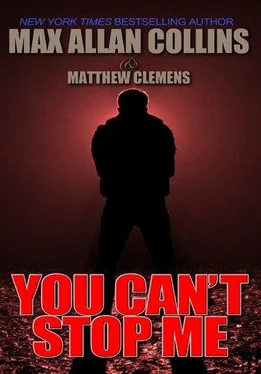
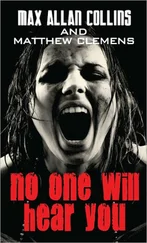
![Сьюзан Кейн - Quiet [The Power of Introverts in a World That Can't Stop Talking]](/books/33084/syuzan-kejn-quiet-the-power-of-introverts-in-a-wo-thumb.webp)
